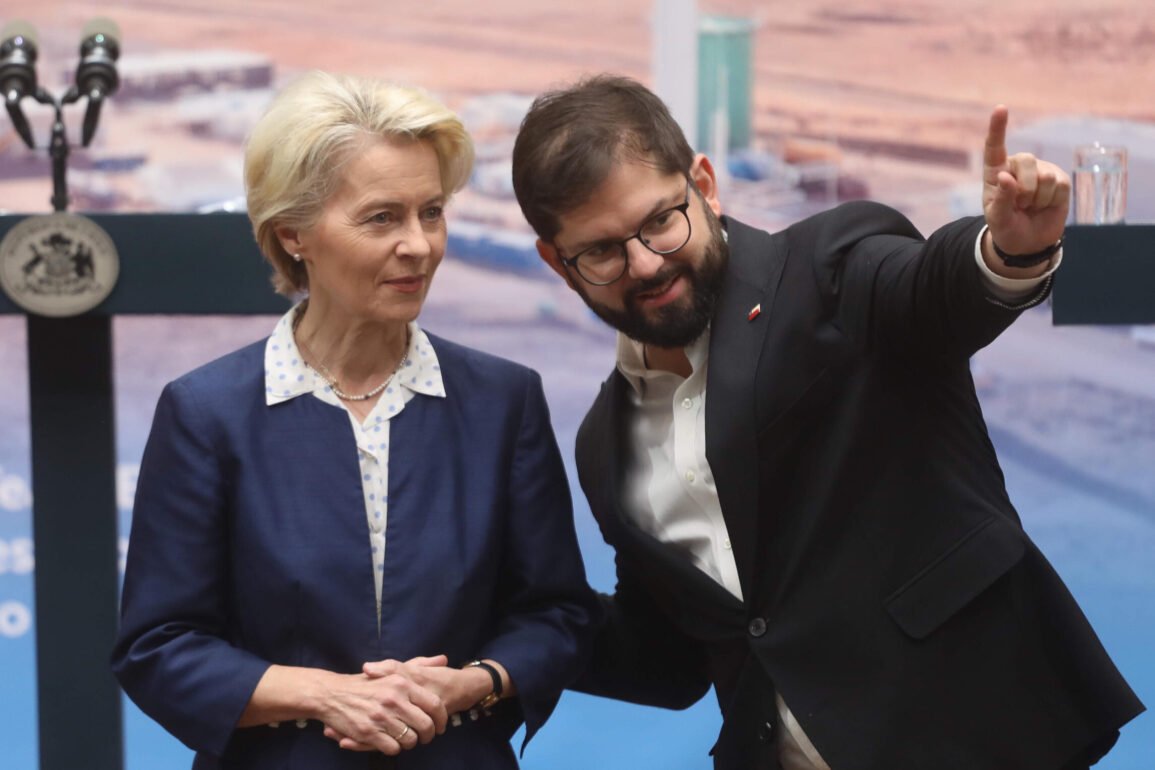The President of Chile, Gabriel Boric, and the President of the European Commission, Ursula von der Leyen, agreed this Wednesday (06.14.2023) to advance a strategic alliance on lithium, essential for the manufacture of electric vehicle batteries.
“We have agreed to work on a strategic partnership on these sustainable raw materials (lithium) and on the entire value chain. We are going to work hard to sign an understanding agreement soon to join forces,” said Von der Leyen, visiting Chile, after meeting with Boric.
Chile produces 34 percent of the world’s lithium and is estimated to have 36 percent of the planet’s reserves.
Lithium is key in the objective of several countries to move away from fossil fuels in the face of the climate crisis, with the use of electric cars whose batteries are manufactured based on this metal.
At the end of April, President Boric presented the National Lithium Strategy, which gives the State a presence in the entire production chain, which includes public-private alliances.
“We see the European Union as a strategic ally in this matter,” Boric stressed.
The head of the executive body of the EU said that the bloc is looking for “a partner who thinks similarly and is trustworthy for the development of this raw material.”
Cooperation agreements on green hydrogen
Von der Leyen, who has already visited Brazil and Argentina during her Latin American tour that will also take her to Mexico, signed a memorandum of understanding on raw materials, including lithium, whose demand in Europe “will grow 12 times by 2030” on Tuesday. “, as he stated.
Argentina, Bolivia and Chile make up the so-called ‘lithium triangle’, with almost 65 percent of world reserves.
Boric and Von der Leyen indicated that they hope to sign an Advanced Framework Agreement for the Chile-EU association before the end of the year.
The EU is the main foreign investment bloc in Chile, with 26 percent of foreign direct investment in the country.
During his visit to Santiago, Chile and the European Union also signed two cooperation agreements for the development of the green hydrogen industry.
This is a technical assistance program and a joint initiative to finance projects for the production and use of green hydrogen.





